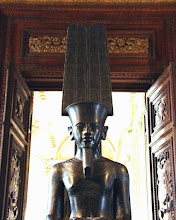Love bridges Falklands divide

The UK and Argentine governments may be further than ever from reaching a definitive solution to the Falkland Islands/Malvinas dispute, but one couple living on the islands is giving them a lesson in peaceful co-existence.
They are the Socodo-Reids, Argentine Sebastian, aged 27, and Falkland Islander Phoebe, who is 28.
Sebastian comes from Claypole, an area of Buenos Aires, and she was born in the Falklands but lived in Argentina from a young age. After getting married in Buenos Aires, the couple moved to settle down in the islands.
Sebastian is one of the 20 Argentines who are fully integrated into the 3,000-strong community of the archipelago.
"We met in secondary school, in Buenos Aires. We went out among friends, although we were in different years," Phoebe tells the BBC at their home in Port Stanley, the Falklands capital.
The couple went out for a year, and got married in 1999 after she became pregnant.
At the time, and it is still the case now, memories of the war were still fresh. ![]()
![]() As a couple, we attracted attention in Argentina, but it was never a problem
As a couple, we attracted attention in Argentina, but it was never a problem ![]()
"As a couple, we attracted attention in Argentina, but it was never a problem. We would talk about the islands when someone asked us what they were like, but we never spoke about the war.
"In any case, I didn't remember what they were like because I left when I was very small," Phoebe says.
"Here in Malvinas there aren't many marriages like ours, half from here and from there. It is different, yes, but I don't remember encountering any sarcasm from anyone on the islands. They all are very nice", says Sebastian.
The couple have two small children: Nicole, nine, who was born in Argentina, and three-year-old Joshua, born in the Falklands.
Sebastian and Phoebe had different perceptions of the islands when they first settled down here six years ago. 
For him, the Falklands were completely unknown; for her, they were only partly known.
"When I first came to Port Stanley I asked myself 'What is this place?'," Sebastian remembers.
"It seemed like such a small place compared with Buenos Aires and, on top of it all, it was extremely cold, something I wasn't used to. However, I got used to the place after a while."
Phoebe liked the islands immediately: "I love tranquillity. Despite everything that has happened, it is a very peaceful place," she says.
Argentine or British?
Sebastian has been working for Port Stanley council and is also a volunteer fireman. Phoebe is a housewife.
In both Argentina and the Falklands, there is no shortage of awkward questions about who the archipelago should belong to.
On that matter, Sebastian and Phoebe agree.
"As far as I know, they are British. A lot of people don't like my saying that, but this place is not like any place in Argentina," says Sebastian. ![]()
![]() In my opinion, the conflict didn't make any sense, it was ridiculous
In my opinion, the conflict didn't make any sense, it was ridiculous ![]()
"They are not even called Malvinas. They are the Falklands," says Sebastian.
"Perhaps we might argue that geographically-speaking they are Argentine, but the reality is different."
The unity this couple shows is down to the fact they both reject the 1982 war.
"In my opinion, the conflict didn't make any sense, it was ridiculous. It was down to decisions made by the Argentine government of the time, which sent so many people to be killed," Sebastian says.
"The soldiers didn't really know where they were going, nor did they have the necessary equipment".
Twenty-five years after the Falklands War, marriages like this one show an alternative solution to a problem which most feel detached from and which seems to be more of a tug of war between governments.








